Sid Meier's Civilization

| a game by | MPS Labs |
| Platform: | PC (1991) |
| User Rating: | 9.3/10 - 3 votes |
| Rate this game: | |
| See also: | Simulator Games, Civilization Games, Games Like For the King |
Games That Changed The World
IF, BY definition, a game that changed the world is a game that kept you glued to your computer for six months, then Sid Meier's Civilization is one such game. The irony of course is that you, personally, probably did very little to change the world in that time.
Hunched over your computer in your sweaty little boxroom, planet Earth hurtled through the cosmos without you. and you were reduced to being a mere spectator in the game of life. But it didn't matter, because with Civilization there was another world you were a part of. the one nght there on your monitor - the world you created.
History Is Fun
Civ allowed us to recreate this miserable rock of ours as it should have been. It also helped us see the world from a different perspective. For the first time ever we could imagine a world where the Roman Empire prospered and did not die in a blaze of hedonistic self-destruction. We could marvel at a world where the Babylonians didn’t blow their own minds to pieces with weird science and revel in an age where Queen Elizabeth I was the omnipotent mistress.
Civ was history as it should have been taught. Imagine Sid Meier walking into your classroom in 1991, whacking a CD into the computer and saying: "Right kids, get your mice out, today’s ancient Greece!" Forget Jennifer Brown behind the bike sheds at lunchtime - it’s time for extra history. In fact, when you think about it, it’s hard to believe the concept of Civilization was ever seriously considered, let alone worshipped for years to come. You just couldn’t imagine the idea would appeal to anyone but the most anal historian... or Sid Meier. Ancient civilisations? Diplomacy? Economics? Irrigation? As a cure for insomnia it sounds . ? perfect, but as a game? Well, it didn’t exactly fit snugly into your usual gaming categories. And on top of everything it was turn-based! What the hell was Meier thinking of?
He couldn’t have picked a less action-packed style of gaming if he’d tried. With such dour subject matter, not to mention the limited, uninspiring and downright boring turn-based interface - the fact that Civilization actually became one of the greatest games of all time is truly some kind of miracle.
Some classic games like Doom and Speedball 2 just sound great. There's no getting away from the fact that they were born to change the world. The mere idea of futuristic violence is an out-and-out winner. But Civ? The reasons for its greatness are altogether more mysterious. So, how does the inspiration for a game like Civ come about? Is it something you mull over while browsing through an encyclopedia of ancient history or does it suddenly hit you, Peter Molyneux-style, in a kind if divine 'vision' in the middle of a cold January night?
"My ongoing interest in history and SimCity inspired Civilization in a way," recalls Meier. "The first prototype of Civilization that I did was a real-time game like SimCity, in that you placed cities and moved things around, but cities grew without you. You basically seeded the world in a kind of SimCity-espue way. Instead of zoning, you seeded things. You said I want a city over there, and why don’t you do some farming over here? What I didn't like in that version was that you did a lot more watching than you did playing."
It was at that point that Meier added the final magical components: "SimCity, Empire, Railroad Tycoon, and the Civilization board game were the different ingredients that we stirred together to get to Civilization."
Sleep For A Thousand Years
Like all great games, the real draw of Civilization was its gameplay. You could restart the game time and time again, and each time you’d find yourself with a different landscape, a different neighbour and different set of circumstances. But despite its non-linearity. Civ was never short of goals.
Sid Meier's ability to keep the gameplay not only entertaining, but fully focused on making your civilisation as powerful as possible while simultaneously juggling so many potentially hardcore economical and military issues was stunning. But with such potentially complex subject matter it wasn't all plain sailing during the game's development.
"Making Civ was incredibly challenging, I actually hit a wall part-way through," recalls Meier. "I was trying different things and the game wasn't coming together the way I had wanted, so I decided to put it on the back shelf and work on another game for a while. Once that game was completed I revisited Civ with some fresh ideas and made the game I was envisioning."
Civ was never completely a one-man show though. Bruce Shelley also happened to devote a large portion of his life to the project, a fact that Meier is quick to acknowledge: "Bruce and I are good friends and have always enjoyed working together. We have a mutual respect for each other's work, which fuelled some collaborations that were a lot of fun."
Despite the incredible amount of time spent working on C/v, Meier is refreshingly honest about how he felt during that time: "Honestly, making games has never really felt like 'work’ to me. It's what I love to do, so putting in long hours (which is inherent when you’re making any game) isn't such a bad thing."
Civ was also one of those old-style games that was a labour of love rather than a means to keep the wolf from the door. Subsequently Meier had the freedom to work wherever he liked: "I worked from home, but mostly in the office at Microprose. It was a large amount of work, but slightly different from the work involved in making games today. Today the game-making process is much more complicated because of all of the different people involved in taking a game from concept to store shelves."
Nothing Changes
The amazing thing is when you go back and play Civ now it’s surprising how similar it is to its contemporary offspring. Regardless of the huge amounts of people involved, the ongoing Civilization series has remained largely faithful in most respects to that first pioneering game - essentially it's only the graphics that have undergone major plastic surgery in the last 11 years. One of the main reasons for this is that Meier has remained active in all of the subsequent sequels. OK, so he may not have been in at the deep end slaving away in his bedroom on the actual code, but he’s always made sure he was around to offer pearls of design wisdom when it’s been needed.
The main bulk of the work on the sequels has in fact fallen to a man named Jeff Briggs. Starting with Colonization in 1994, Briggs has also guided Civ II (1996) and Civ III (2001) safely home.
And play it they do. The multiplayer version is now proving to be rather popular online and on LANs around the world. Is this something Meier is surprised about? After all, Civ’s gameplay is relatively ponderous and thoughtful -qualities that traditionally don’t translate into classic multiplayer experiences. "In the past I’ve mostly enjoyed playing Civ as a single player, but lately I’ve been having great fun playing the very cool multiplayer games for Civ III. As you can imagine, we have quite a few veteran Civ players at Firaxis, so it's really challenging and fiercely competitive. I’m constantly amazed at the unique strategies the guys here use to win... it makes for some intense play sessions!"
An Influential Man
One of the side effects of making such a successful game is that people inevitably try and copy it. In the case of Activision and Call To Power absolutely no effort is made to hide it. In fact, every effort is made to ensure that people are under the illusion that said game is part of the great Meier dynasty.
Other developers though are subtler with their 'flattery’. There is an argument to suggest that if it hadn’t been for Civ the whole real-time strategy genre would never have existed. Civ was, after all, the first game to feature resources: coal, oil, gems, furs, the list goes on and on... These were all highly important aspects of gameplay; you’ll be lucky to come across an RTS nowadays that doesn’t have you running around foraging for similar resources. Advancing technology and tech trees is another area that modern RTSs simply cannot avoid. Creating units to attack and defend cities is another. The similarities are endless. If Dune 2 or Command & Conquer claim to be the forebearers of the modern RTS, they in turn owe a huge debt of gratitude to Civ.
The god game is another genre that’s difficult to separate from the all-encompassing influence of Civ. Strictly speaking the original Populous was the true pioneer of the genre. Civ along with SimCity can certainly be credited with helping the god game find its niche. Would empire-building games such as Zeus and Pharaoh have appeared if it weren’t for Civ? Even, yawn, economy simulations like Capitalisation drew on Civ's unearthly ability to get people interested in subjects they had no right to be interested in.
True, Capitalisation never really pulled it off, but the fact remains. Civ allowed developers to see that if it’s done property, with due consideration for the often neglected component of gameplay, any topic can be made into a successful game.
There can be no doubt that stuffy, boring old Civilization influenced more games than people care to admit. "There are lots of games that have borrowed ideas from Civ, just as I have borrowed ideas from other great games," states Meier. "I think that’s a great thing in our industry... As long as you add some new ideas to your game, borrowing other things that have worked in the past makes sense. I like playing other games and finding similarities to games I’ve made... I take it as a compliment." There’s no shortage of games where Meier can take solace in the fact there's a little bit of him in there. Needless to say, Meier and Civilization are without doubt one of the most inspirational and influential forces in the games industry. When Meier puts his name to something you have to sit up and take notice, even if it’s a game about the American Civil War, or dare we say it, a game about creating a golf course. Even if it sounds as though the game has to be dull, as we've witnessed with Civ, some people can make magic out of seemingly mundane and obscure topics - and in Meier we have the ultimate magician.
Download Sid Meier's Civilization

System requirements:
- PC compatible
- Operating systems: Windows 10/Windows 8/Windows 7/2000/Vista/WinXP
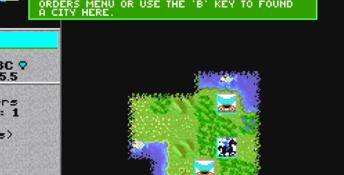

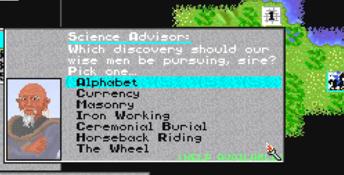
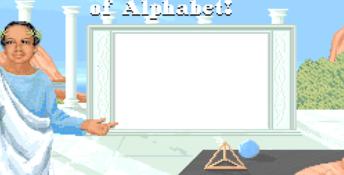

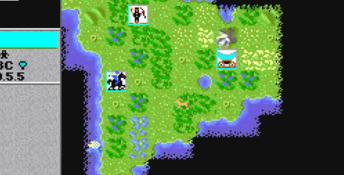
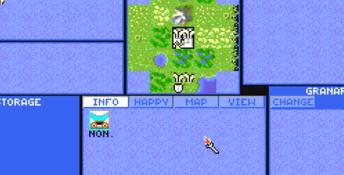
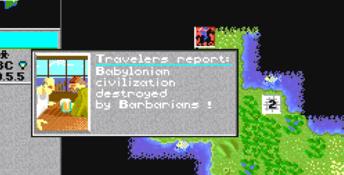
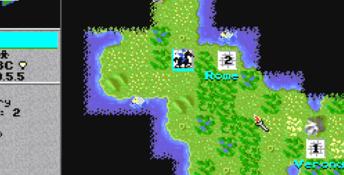
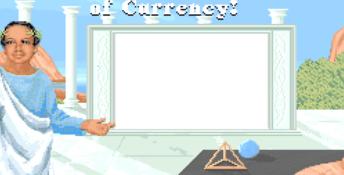

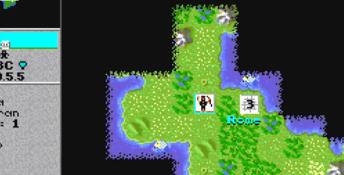
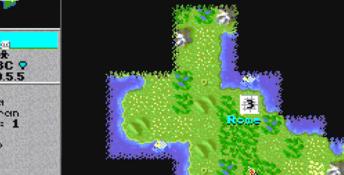

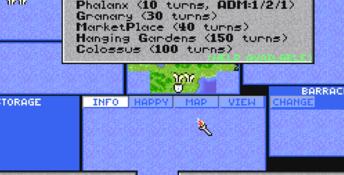
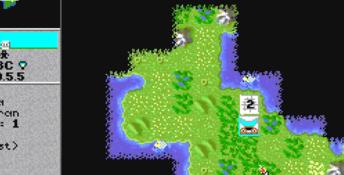
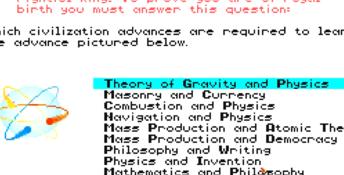
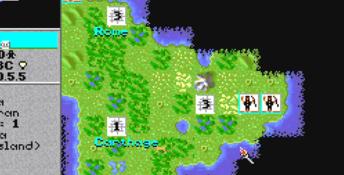
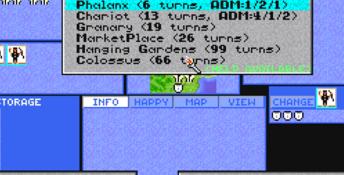
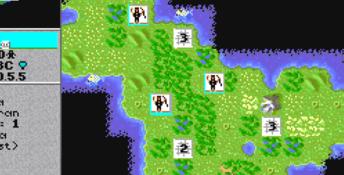
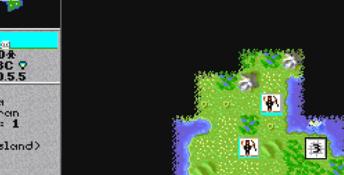
 My Village Life
My Village Life
 Planet Coaster 2
Planet Coaster 2
 Train Simulator 2021
Train Simulator 2021
 Farmer's Life
Farmer's Life
 Gallop Racer 2004
Gallop Racer 2004
 Epic Fantasy Battle Simulator
Epic Fantasy Battle Simulator
 Assetto Corsa - Dream Pack 1
Assetto Corsa - Dream Pack 1
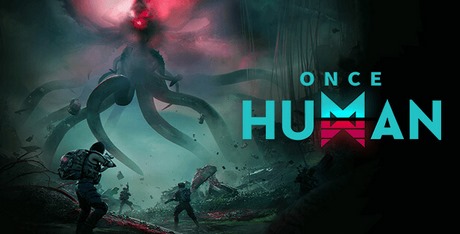 Once Human
Once Human
 Sid Meier's Civilization V
Sid Meier's Civilization V
 Sid Meier's Alpha Centauri
Sid Meier's Alpha Centauri
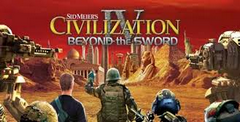 Sid Meier's Civilization IV: Beyond the Sword
Sid Meier's Civilization IV: Beyond the Sword
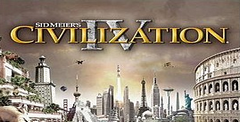 Sid Meier's Civilization 4
Sid Meier's Civilization 4
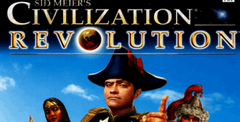 Civilization Revolution
Civilization Revolution
 Civilization: Call to Power
Civilization: Call to Power
 Sid Meier's Civilization II
Sid Meier's Civilization II
 Sid Meier's Civilization 3: Conquests
Sid Meier's Civilization 3: Conquests
 AGEOD's American Civil War
AGEOD's American Civil War
 Coffee Break
Coffee Break
 Farming Simulator 15
Farming Simulator 15
 Freespace 2 Source Code Project
Freespace 2 Source Code Project Rockstar Games Presents Table Tennis
Rockstar Games Presents Table Tennis RollerCoaster Tycoon 2
RollerCoaster Tycoon 2 The Movies
The Movies
 The Sims 2: Happy Holiday Stuff
The Sims 2: Happy Holiday Stuff
 Titans of Steel: Warring Suns
Titans of Steel: Warring Suns Towing Simulator
Towing Simulator
 Zoo Tycoon 2: Marine Mania
Zoo Tycoon 2: Marine Mania